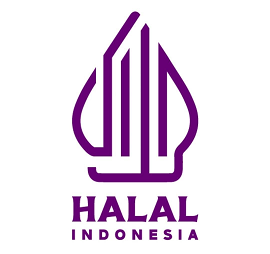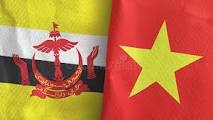The
25th Session of the Standing Committee for Economic and Commercial
Cooperation of the Organization of the Islamic Conference (COMCEC) will
be held in Istanbul, Turkey on 5-9 November 2009. This year’s session
coincides with the 25th anniversary of the establishment of the
subsidiary organ of the OIC.
The Government of Turkey, whose President chairs the Committee, all
Member States of the OIC and the General Secretariat of the OIC and its
concerned institutions will commemorate the 25th Anniversary of the
creation of COMCEC by holding an Economic Summit to which Heads of
State and Government of OIC Member-States have been invited.
The 25th session of COMCEC would convene on 7th November 2009, at the
level of Ministers responsible for economic matters in OIC
Member-States, but would be preceded in the usual manner by a meeting
of senior officials on 5-6 November 2009.
On the margin of the 25th Session, the COMCEC Business Forum will also
be held on 5-6 November 2009 in Istanbul. The businesspeople from the
Member States will participate at the Forum to discuss matters relating
to promotion of business among them, and lending support to the current
pre-occupation of OIC in the domain of encouraging Private Sector-led
economic growth in OIC countries.
The 25th COMCEC Session will review the implementation of the Ten Year
Programme of Action (TYPOA) in the economic sphere. It would also
examine the important achievements realised in the prosecution of the
economic agenda of the OIC, which are vital for further strengthening
the economic and commercial cooperation among the Member States.
According to the Draft Agenda, the Session will consider such matters
as the Impact of fluctuating commodity prices on the economies of the
Member States; Crisis on world financial markets and developments on
the global energy markets and their implication on the OIC Member
Countries.
The COMCEC Session will also review the trade and investment related
issues, such as financial cooperation among the OIC Member Countries
and enhancing intra-OIC investment flows, cooperation among Stock
Exchanges of the Member States, development of the OIC Halal Food
Standards and Procedures. The Session will also discuss poverty
alleviation issues and economic/technical assistance to the OIC Member
Countries.
The Member States of the OIC will share their views, suggestions and
expectations with regard to the above mentioned subjects as well as
their experiences regarding the recent economic and financial
developments and possible ways of cooperation.
The 25th Session of COMCEC is historic in many respects. It coincides
with the 25th anniversary of the creation of standing committee
entrusted with the task of addressing economic and commercial
cooperation among member-states of the OIC. It is a known fact that the
coming of COMCEC twenty-five years ago, constituted a major milestone
in the efforts of the OIC at diversifying the mandate of the
Organisation and creating mechanisms to promote the economic welfare
and development of the Islamic Ummah. It is also a double coincidence
that this Session is holding when the OIC is celebrating the 40th
anniversary of its existence as an inter-governmental forum.
COMCEC became operational at the Fourth Islamic Summit in 1984, with
the election of the President of the Republic of Turkey as its
Chairman. As the responsible organ for promoting economic and
commercial cooperation among OIC Member States, COMCEC has proven to be
a very effective tool in strengthening economic and trade ties among
the Member States.
However, due to the rapid developments taking place on the world’s
socio-economic and political landscapes in late 1980s and towards the
beginning of 1990s, the 1981 Action Plan had to be reviewed. In this
regard and based on the past experiences, COMCEC adopted a new Strategy
and Plan of Action in 1994, which defined programs of action in
emerging priority areas.
One of the most important achievements of COMCEC, was the Framework
Agreement on Trade Preferential System, which entered into force in the
autumn 2002. In order to give effect to this agreement, COMCEC launched
Rounds of Trade Negotiations in late 2003. The First Round of
Negotiations, which was completed in April 2005, produced “The Protocol
on the Preferential Tariff Scheme for TPS-OIC” (PRETAS). This Protocol
and the Agreement of the Rules of Origin are open for signature and
ratification. PRETAS is expected to soon enter into force when the 10th
ratification is received from a Member States.
These giant strides in the economic agenda of the Organisation were
reinforced, in December 2005, by the landmark adoption by the Third
Extraordinary Islamic Summit in Makkah Al-Mukarramah of the OIC
Ten-Year Programme of Action (TYPOA). This gave the requisite approval
to the new vision and momentum elaborated for more active economic
cooperation among the OIC Member States. The OIC Ten-Year Programme of
Action has indeed provided a Road Map for fostering the development of
Member States and strengthening economic and commercial cooperation
among them. The economic thrusts of this Programme of Action are the
harmonization of trade policies, the elimination of trade barriers, the
boosting of intra-OIC trade, alleviation of poverty and a
Private-Sector-led development.
The Makkah Extraordinary Summit has mandated the COMCEC to work out
ways and means for increasing intra-OIC Trade from 15% in 2005 to 20%
in the year 2015. In this context, the Intra-OIC trade has risen from
14.5% percent in 2004 to 16.60% in 2008, and the trade volume for all
OIC countries which stood at US0.6 billion in 2007 reached US7 billion
in 2008.
The General Secretariat is current pre-occupied with adopting a
project-approach to economic cooperation among member-countries. This
approach envisages the elaboration of programmes that would impact on
the welfare of the vulnerable groups in OIC countries. Three examples
on on-going projects in this connection are the Cotton Rahabilitation
programme, which is aimed at increasing capacity utilization of the
rural population and creating wealth in the critical sector of
economies of OIC countries. The other programme is the Agro-Food
Industrial development, which aims at empowering the rural population,
while at the same time addressing the food crisis which has seen prices
soaring in OIC countries. Another project in this connection is the
Sudan-Dakar Railways project, which aims at alleviating the
infrastructure deficit in OIC countries and promoting integration.
These projects are to complement the current endeavours at increasing
intra-OIC trade and improving the condition of the vulnerable groups in
OIC countries.
It is worth-mentioning that, despite the enormous potentials of OIC
countries in the area of global energy endowments and abundant mineral
and natural resources, about one-third of the member states of OIC are
considered as Least Developed countries.



